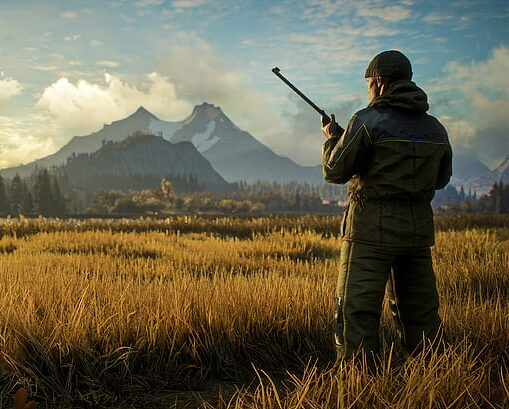SPORTS HUB, Style
Past Present and Future of the Hunting?
Past:
Hunting is an ancient practice that dates back to the time of early humans. In prehistoric times, hunting was essential for survival, providing food, clothing, and other resources. Early humans used primitive tools like spears, bows, and traps to hunt animals for their sustenance. Hunting played a vital role in human evolution, influencing our social structures and the development of early civilizations.
As societies progressed, hunting evolved into a recreational activity among nobility and aristocrats. It became a symbol of prowess and skill, with hunting parties organized for leisure and entertainment. In some cultures, hunting also held religious significance, and certain animals were revered or considered sacred.
Present:
In modern times, hunting has undergone significant changes due to the growth of agriculture, domestication of animals, and technological advancements. The primary purpose of hunting today is not for subsistence but rather for wildlife management, conservation, and sport. Many countries have established regulations and laws to control hunting practices, ensuring sustainable and ethical hunting.
Hunting continues to be a popular recreational activity for many people worldwide. Hunting enthusiasts participate in activities such as big-game hunting, bird hunting, and sport shooting. However, there is an ongoing debate about the ethics of hunting, particularly trophy hunting, which involves killing animals for their body parts as trophies.
Wildlife conservation efforts have gained prominence, and responsible hunting practices are often utilized as a means to control animal populations and maintain ecosystem balance. The goal is to prevent overpopulation and protect both the hunted species and their habitats.
Future:
The future of hunting will likely be shaped by various factors, including advancements in technology, shifts in societal values, and the ongoing efforts in wildlife conservation. Here are some potential trends for the future of hunting:
- Technology Integration: Hunting equipment and gear are likely to continue evolving with advancements in technology. This could include more efficient and environmentally friendly hunting tools, improved tracking devices, and augmented reality systems for a more immersive experience.
- Conservation-focused Hunting: The focus on wildlife conservation is expected to increase further. Hunters may play a more significant role in conservation efforts by participating in selective hunting practices aimed at preserving biodiversity and maintaining ecological balance.
- Ethical and Sustainable Practices: There will likely be a growing emphasis on ethical and sustainable hunting practices. Education and awareness campaigns will promote responsible hunting, ensuring that it is done with respect for the environment and the welfare of animals.
- Increased Regulation: As concerns about biodiversity and animal welfare rise, hunting regulations may become stricter to prevent illegal hunting and protect endangered species.
- Changing Demographics: The demographics of hunters might change, with younger generations potentially embracing hunting for different reasons than previous generations. As a result, the hunting community may diversify in terms of interests and motivations.
- Continued Debate: The ethical debate around hunting, especially trophy hunting, is likely to persist. Society’s views on hunting will continue to be a topic of discussion, and policies may evolve accordingly.
In summary, while the ancient practice of hunting has evolved significantly over the centuries, it is expected to continue adapting to societal, technological, and environmental changes in the future. Responsible and sustainable hunting practices are likely to take center stage as humanity strives to strike a balance between cultural traditions and conservation efforts.

